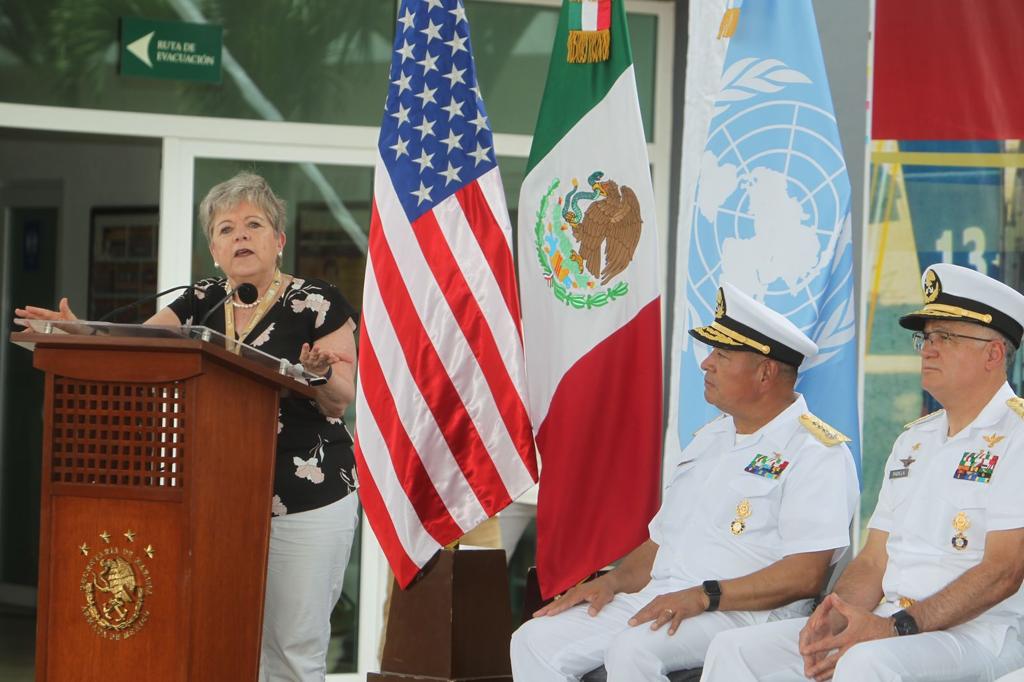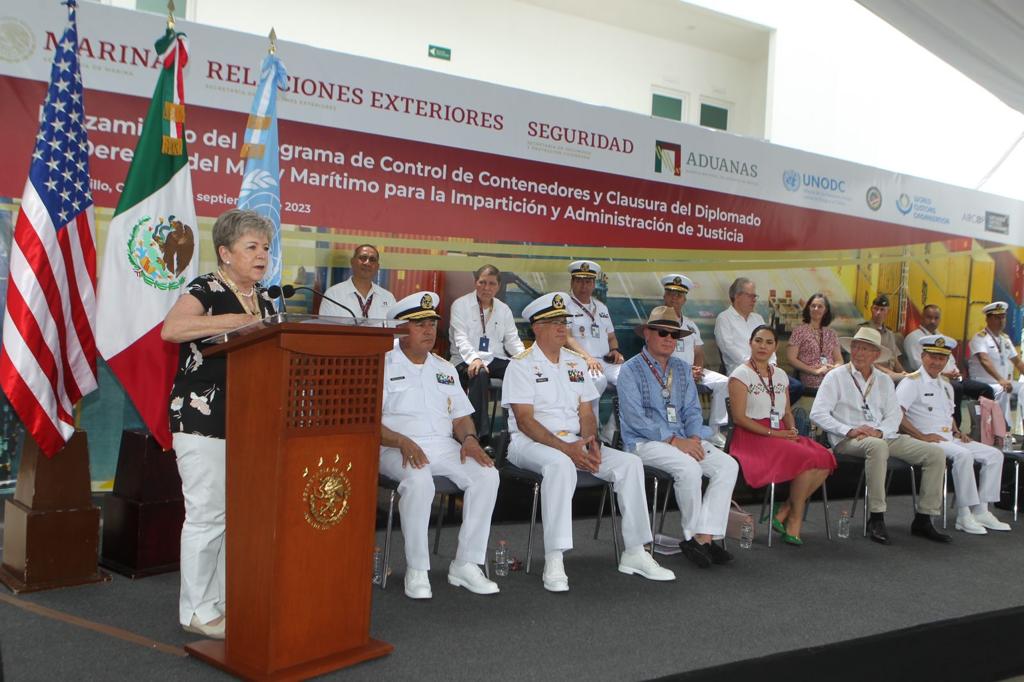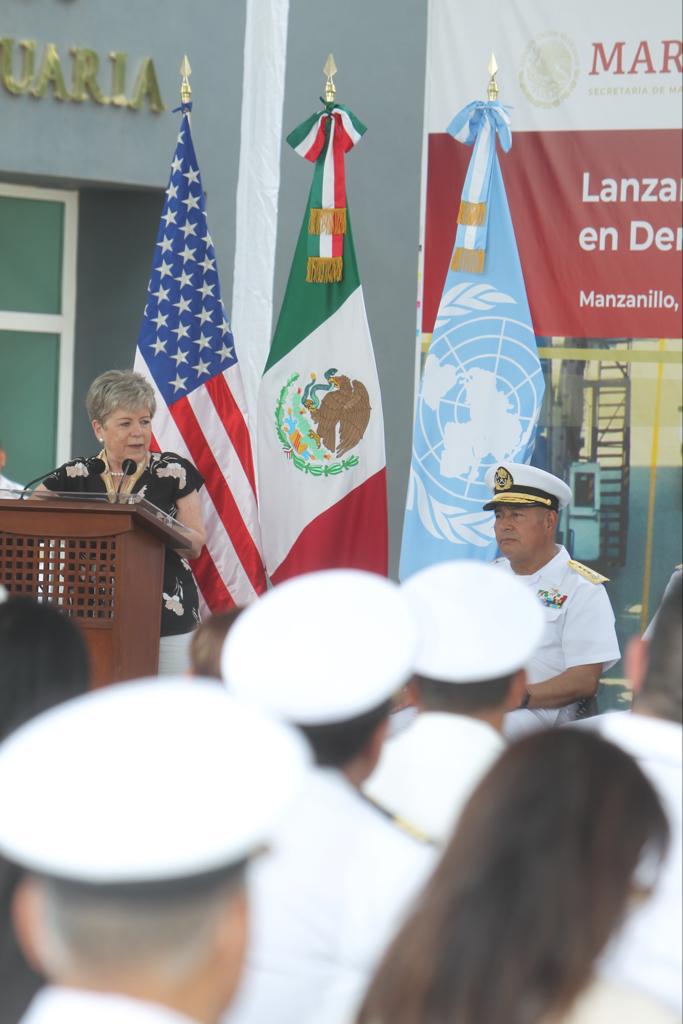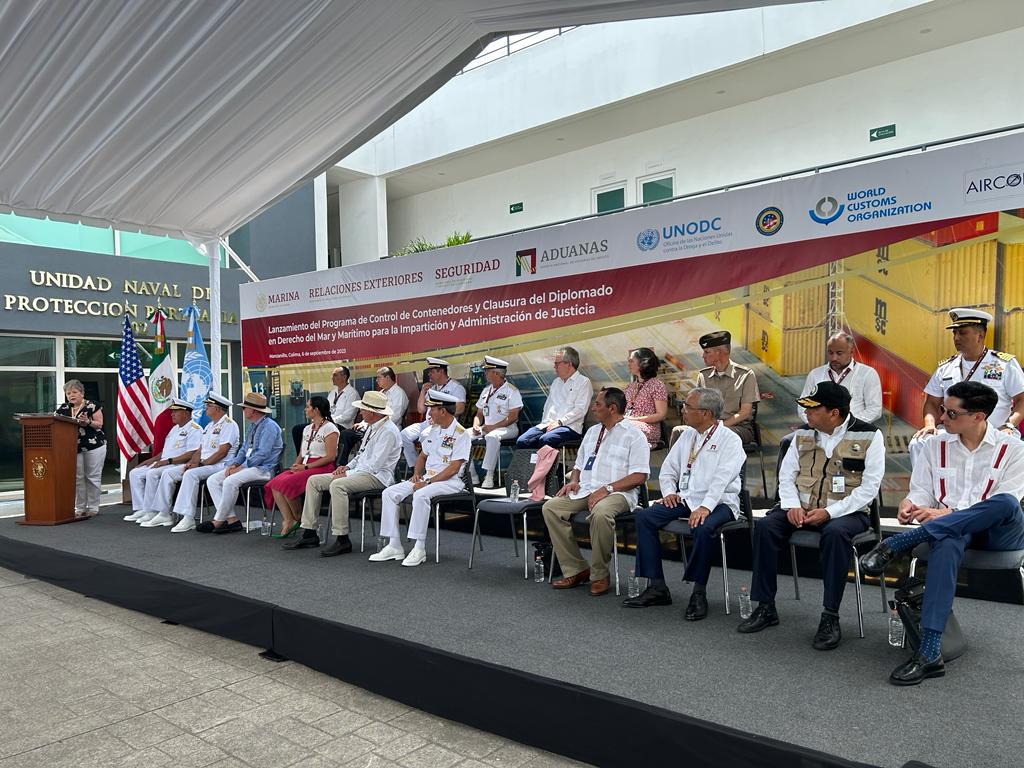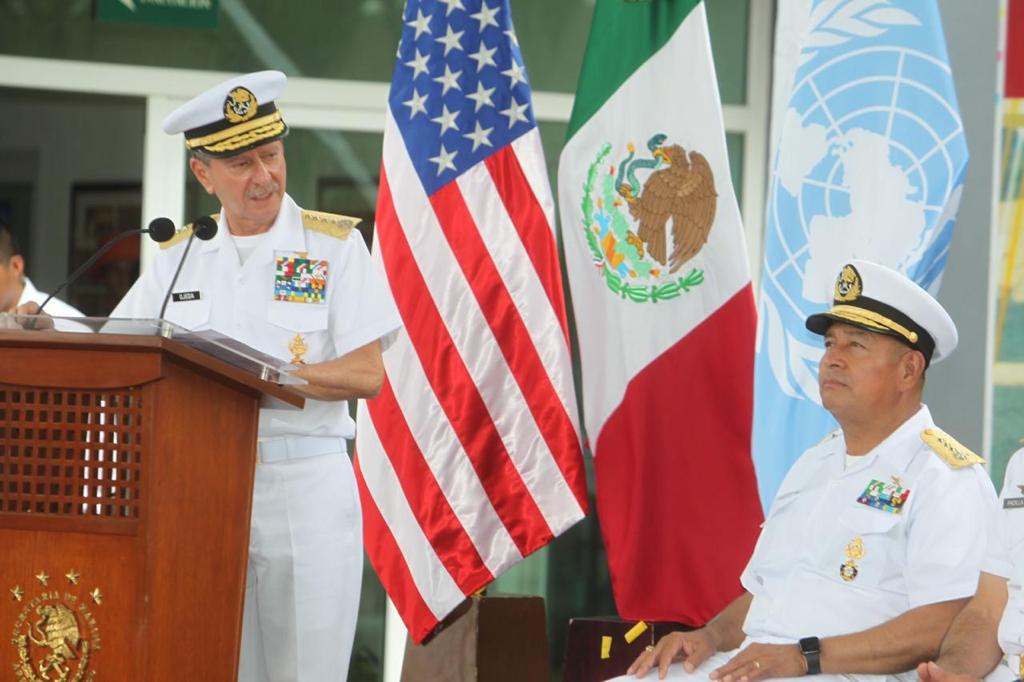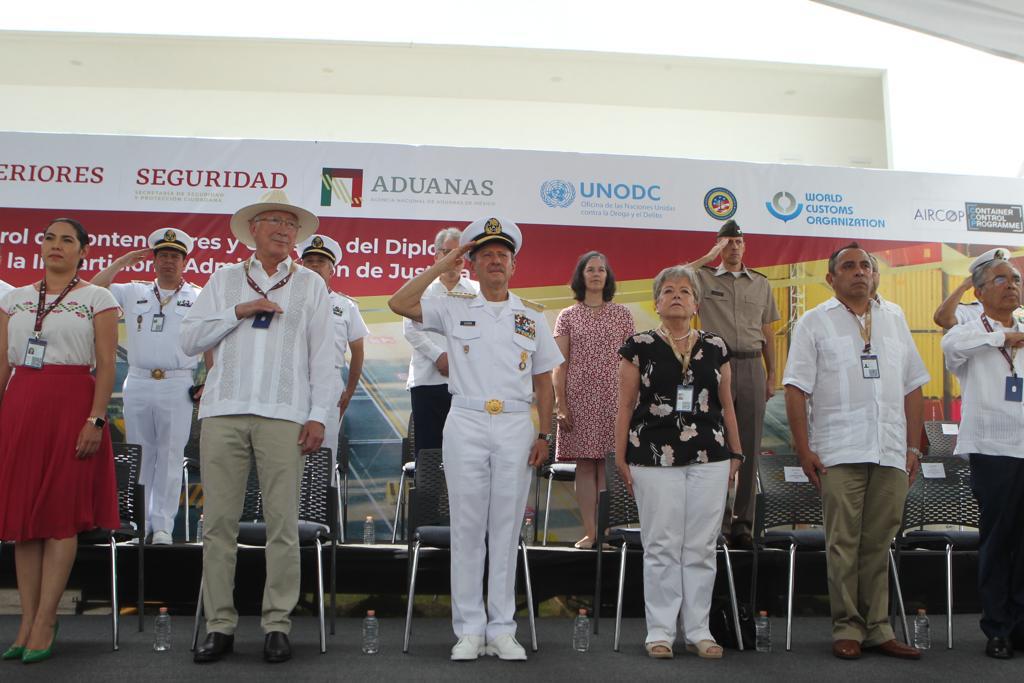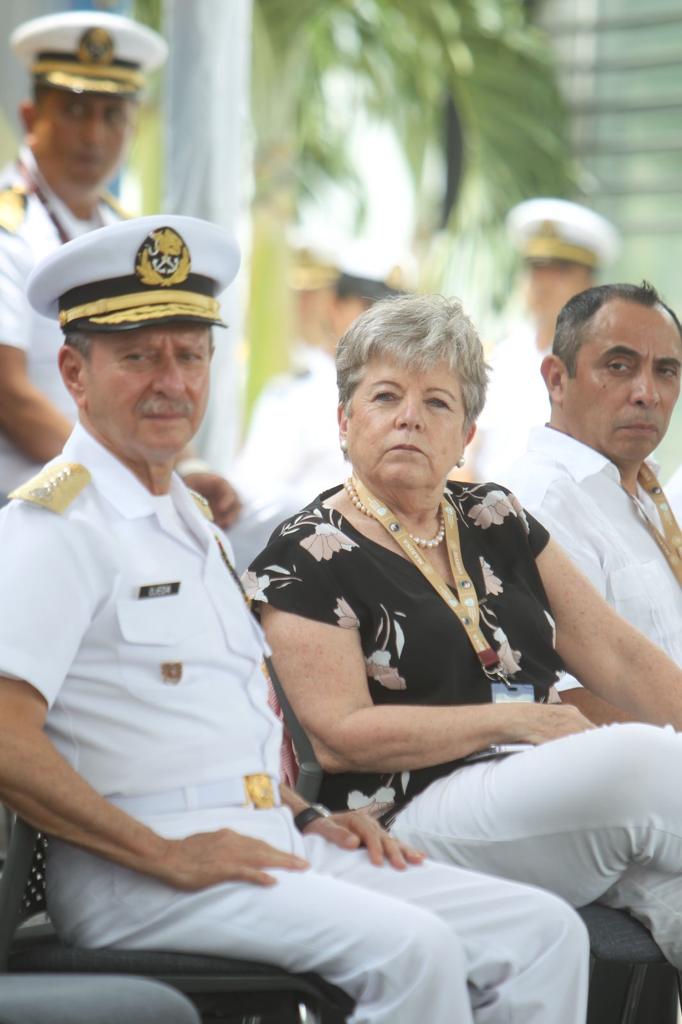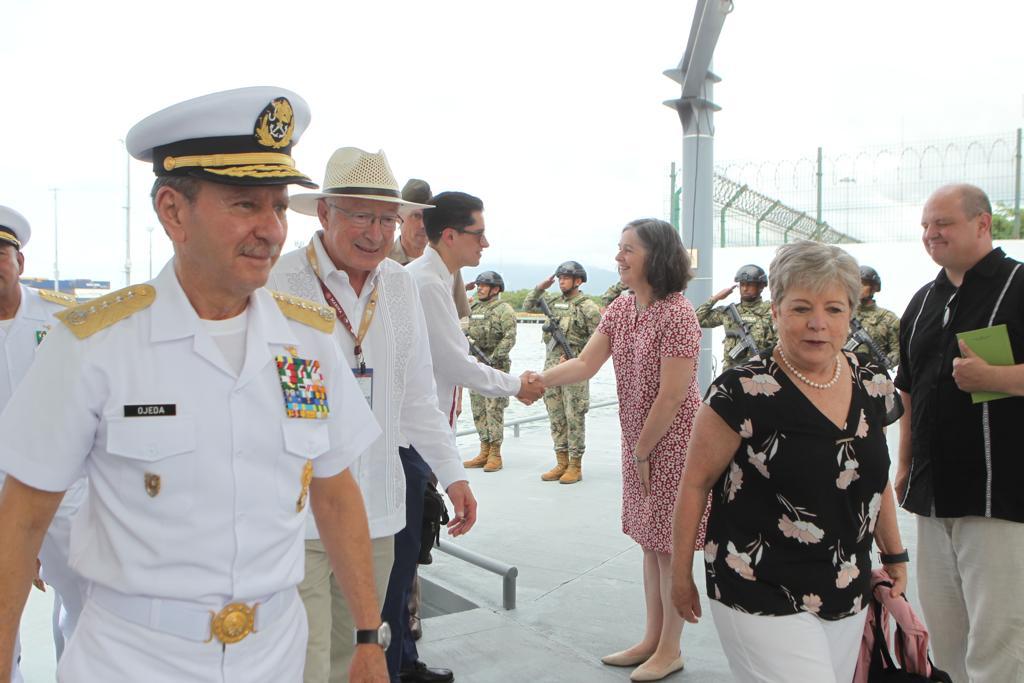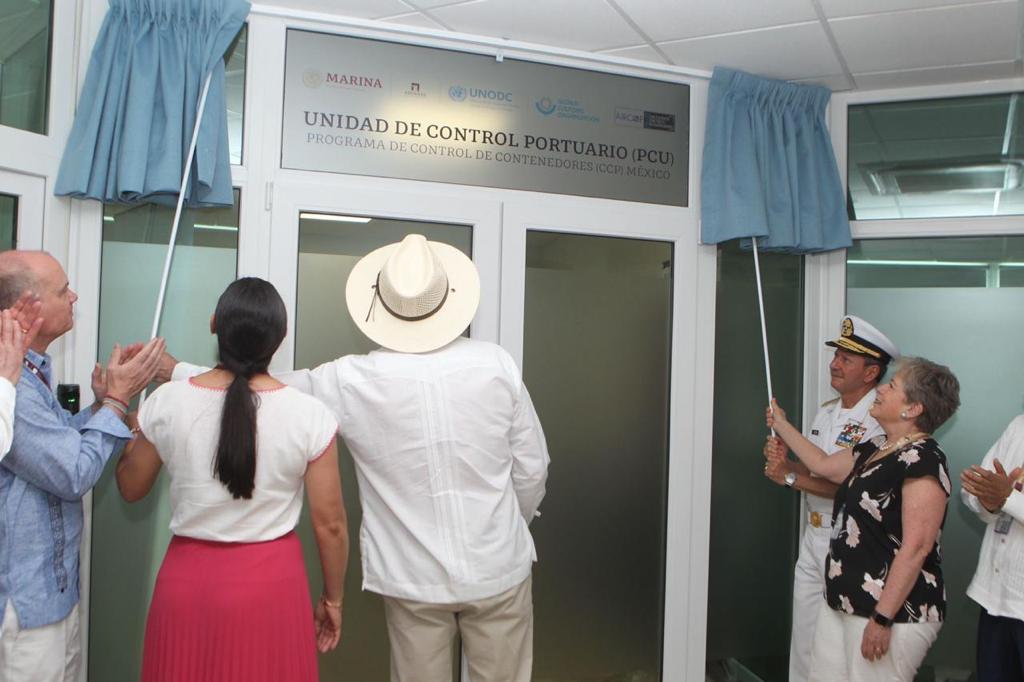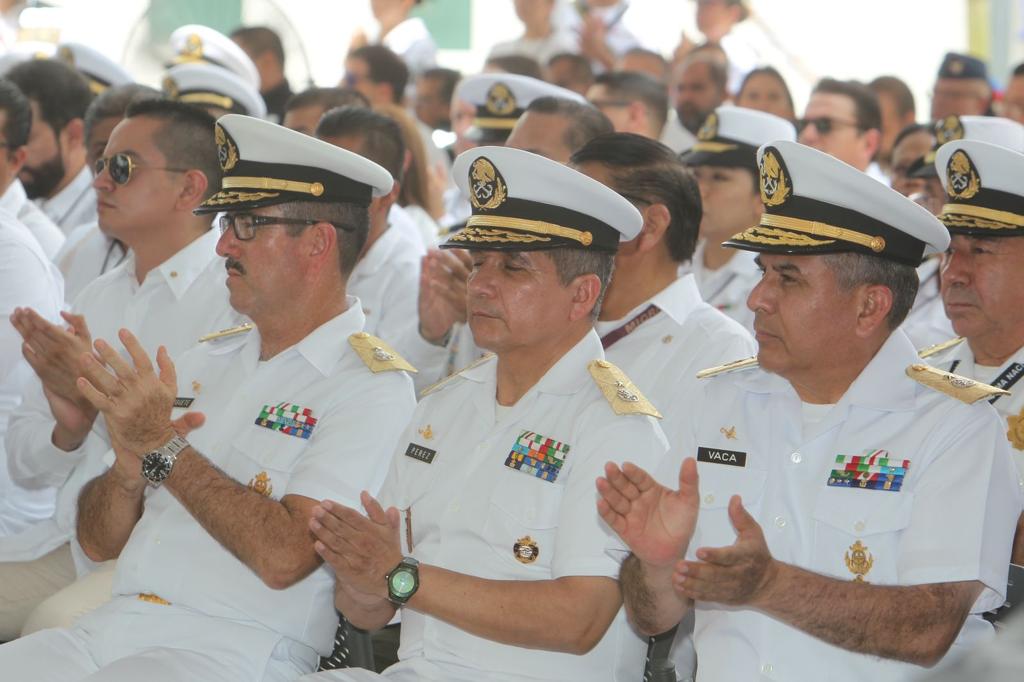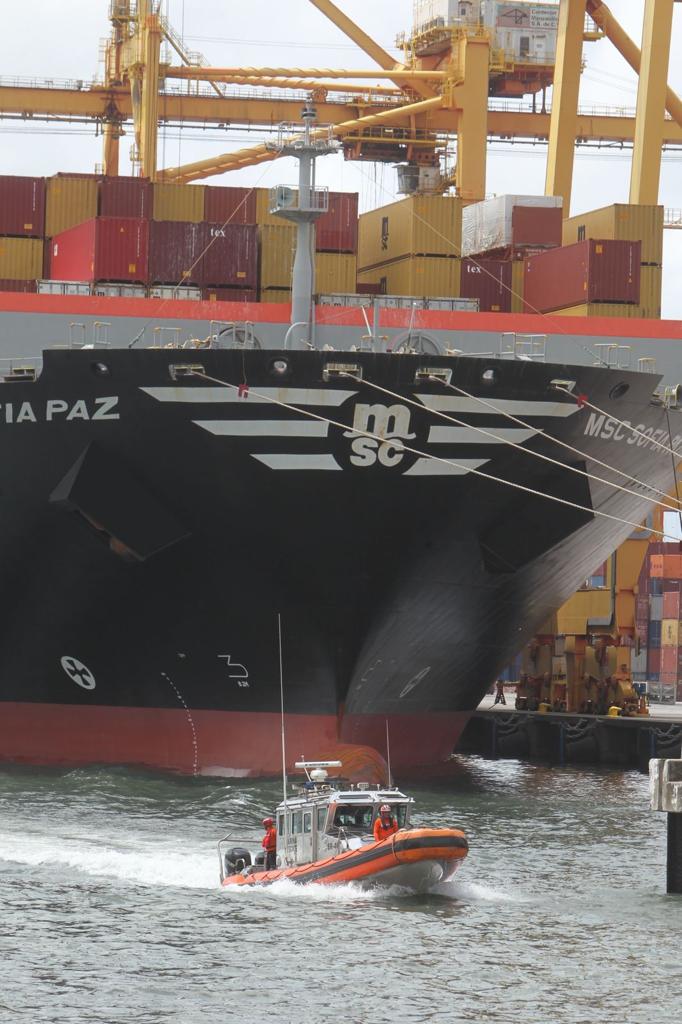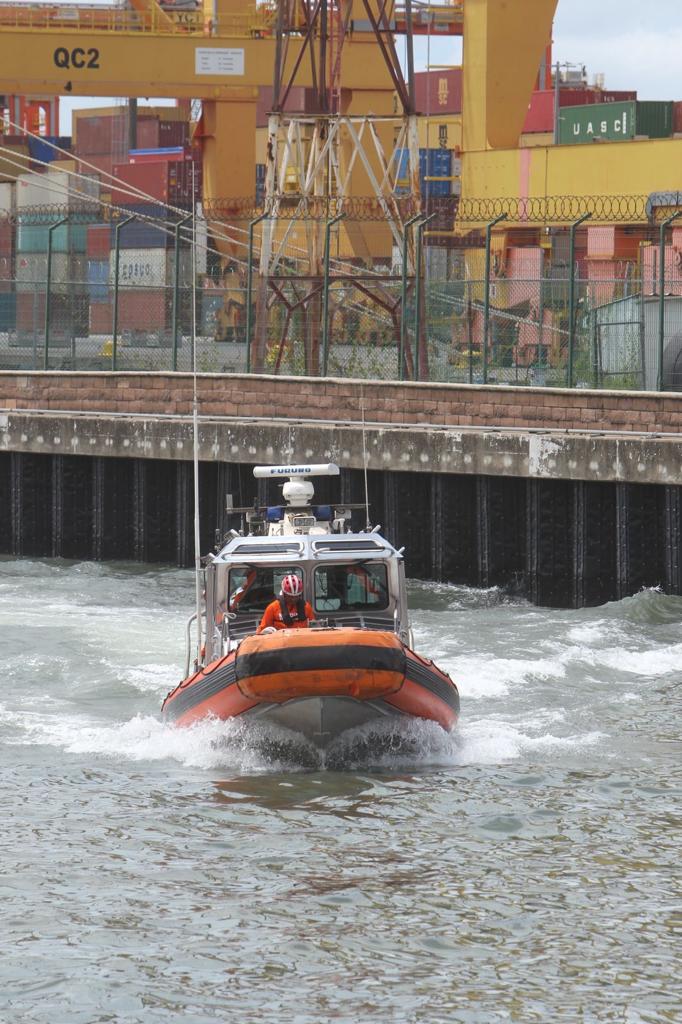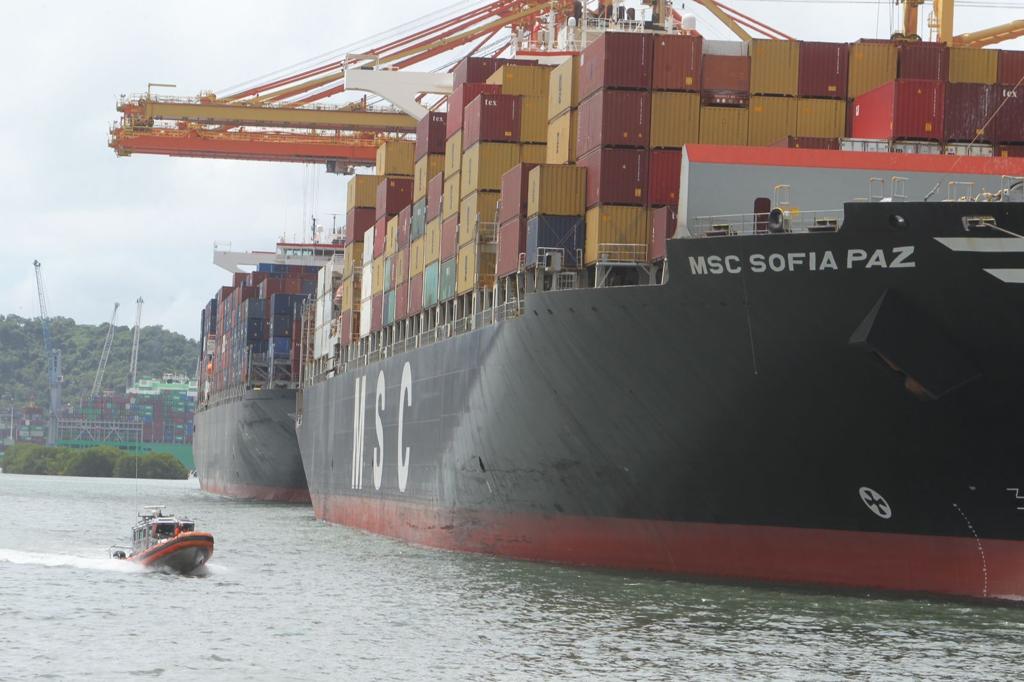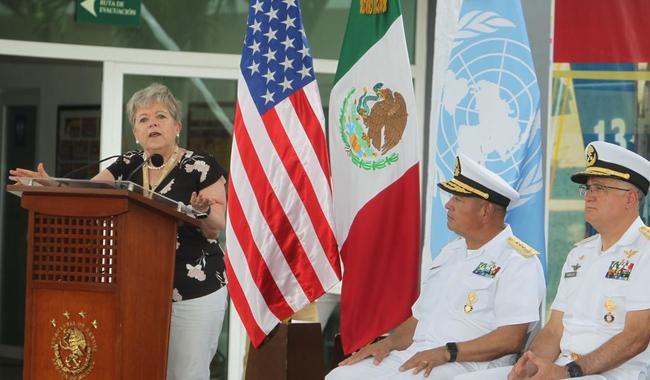- The Container Control Programme is one of the flagship initiatives of the United Nations Office on Drugs and Crime (UNODC). A joint initiative with the World Customs Organization (WCO), it aims to minimize the use of maritime containers for illicit drug trafficking and other transnational organized crime activities.
Manzanillo, Colima, September 6, 2023.- In an effort to increase security at Mexican ports and strengthen international cooperation against organized crime, the Government of Mexico, UNODC and the U.S. Embassy have launched the Container Control Programme (CCP) in the port of Manzanillo.
The CCP is a global UNODC-WCO program established in 2004 that currently operates in 74 countries, including such countries as Colombia, Kenya, Panama and Thailand. Mexico joins this global network to promote legal trade and minimize the use of containers for the trafficking of drugs, precursor chemicals, weapons, wildlife, and counterfeit goods.
About 90% of all global trade is conducted via maritime containers, of which more than 500 million are shipped yearly in the trade supply chain and, of this amount, less than 2% are inspected. The volume of containers traveling the seas from country to country and continent to continent makes them important targets for those trading in illicit goods.
Implementation of this program is a pioneering part of the Mexico-U.S. Bicentennial Framework for Security, Public Health and Safe Communities. It recognizes the importance of strengthening supervision and coordination in seaports to address current security challenges. In addition to the financial resources provided by the Mexican government, support has also been received from the U.S. government, through the Bureau of International Narcotics and Law Enforcement Affairs (INL).
Participating for Mexico in the inauguration were the Secretaries of the Navy and Foreign Affairs; Colima Governor Indira Vizcaíno Silva; and officials from the Security Ministry and the National Customs Agency. The UN Resident Coordinator in Mexico, Peter Grohmann, was also present.
The UNODC Representative in Mexico, Kristian Hölge, said that, with Mexico's participation in the CCP, "the American continent has taken a big step in improving cooperation for maritime and port security. The Container Control Programme is the intelligent application of the law. CCP is intelligent cooperation.”
The Secretary of Foreign Affairs of Mexico, Alicia Bárcena, said that Mexico is joining 74 countries that, through the Container Control Programme, seek more assertive policies and alliances in order to find and inspect containers with the aim of interrupting the trafficking of drugs, weapons and illicit products. The CCP is a magnificent example of how multilateralism and the Bicentennial Framework with the United States strengthen security cooperation and respond effectively to national, regional, and global problems.
The U.S. Ambassador to Mexico, Ken Salazar, commented on the need to work together to combat this threat to our peoples at sea and on land.
Navy Secretary Admiral José Rafael Ojeda Durán said, “Mexico decided to take an additional step to achieve greater security in our ports. We are joining this global effort to minimize the use of containers at seaports, airports and land border crossings for illicit drug trafficking and other transnational organized crime activities."
Similarly, he highlighted the completion of the certificate course in the Law of the Sea and Maritime Law and the Administration of Justice, which "means that we are on the right path for increasing our response capacity at Mexico's ports."
The National Customs Agency noted that "the importance of this program comes from the efforts of the 120 participating countries, through their respective 'Joint Port Control Units', to mitigate risks and address the threat posed by illicit drug trafficking and other transnational organized crime activities to people, assets, the treasury and information.”
The Container Control Programme will begin in the port of Manzanillo and expand to include four additional ports: Ensenada and Lázaro Cárdenas on the Pacific coast, and Altamira and Veracruz on the Atlantic coast.
***
Photos, video and more information about the project: https://bit.ly/ProgramaDeControlDeContendores
For more information, please contact
Fernando Cáñez: Fernando.canezsanchez@un.org
